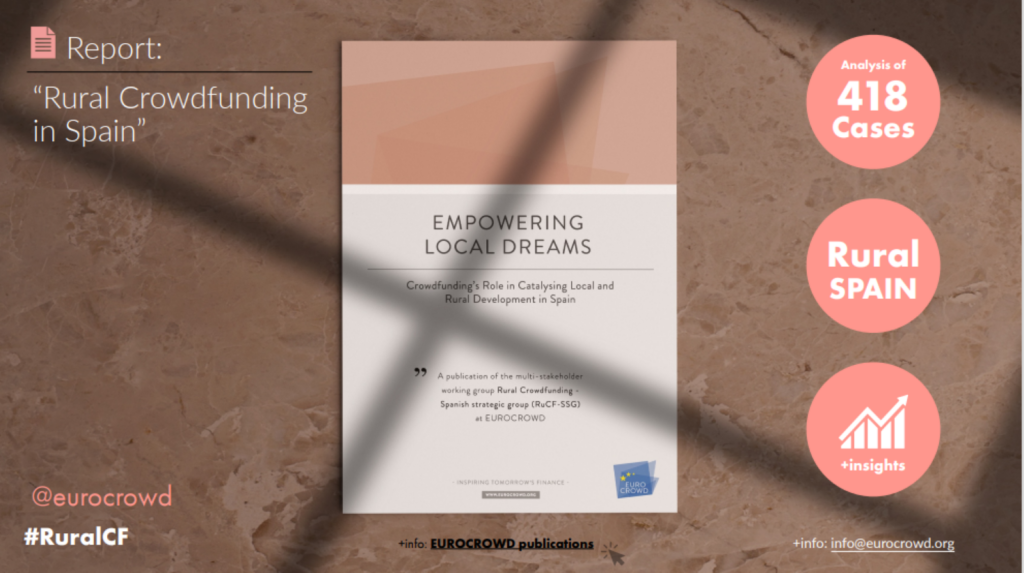Brussels, 16 May 2024: A new report by EUROCROWD titled “Crowdfunding’s Role in Catalysing Local and Rural Development in Spain” in collaboration with the Universidad Camilo José Cela, UAM Universidad Autonoma de Madrid Centro de Investigación sobre Justicia Administrativa, and Simbiosis HUB, delves into the extensive impact of crowdfunding on local and rural development across Spain. The analysis, based on 418 crowdfunding campaigns, highlights the financial, innovative, and community engagement benefits of crowdfunding.
Key points:
- Access to Capital
- Community engagement
- Risks and challenges
- Matchfunding

Key findings include:
- Total Fundraising: Crowdfunding has generated a substantial €17,400,781, demonstrating its financial viability for projects outside traditional urban centers.
- Sectoral Versatility: Projects funded span agriculture, industry, and services, showcasing crowdfunding’s adaptability to diverse local needs.
- Platform Diversity: Reward-based platforms dominate (58.37%), followed by lending (30.70%), equity (1.44%), and donation (9.59%) platforms.
- Innovation and Sustainability: Over 80% of funded projects introduced innovative solutions, with the environmental sector leading at 37.37%.
However, the report also addresses several challenges, such as uneven resource distribution, donor fatigue, and an overemphasis on popular projects.
Policy recommendations include:
- Educational Initiatives: Specialized courses and workshops in crowdfunding and finance.
- Financial Literacy Programs: Training sessions to improve understanding of crowdfunding and investment risks.
- Legislative Support: Increased coordination among different levels of public administration and the introduction of financial incentives for innovative projects.
- Public-Private Partnerships: Enhanced collaboration to provide funding, technology, and networks.
Overall, the report underscores crowdfunding’s potential to transform rural areas in Spain, fostering innovation and community engagement, while also highlighting the need for supportive policies and infrastructure to sustain these benefits.
We are grateful for the support and help provided by all contributors, in particular: Mauricio O’Brien, EUROCROWD, Javier Ramos, Universidad Camilo José Cela, Alfonso Egea, CIJA UAM – Centro de Investigación sobre la Justicia Administrativa and Caterina Cerdà, Simbiosis Hub. A special thanks goes also to Lucas Olmedo, UCC –
University of Cork for his relentless work in reviewing the work.
Download the report here in



